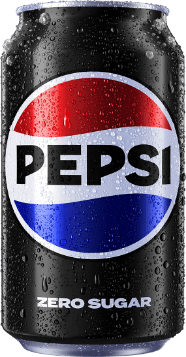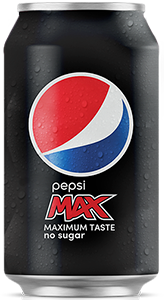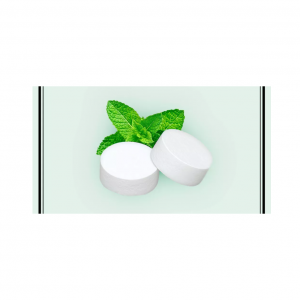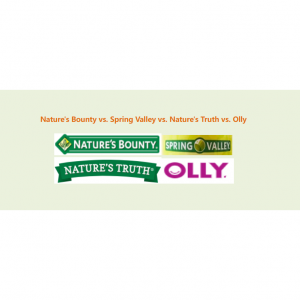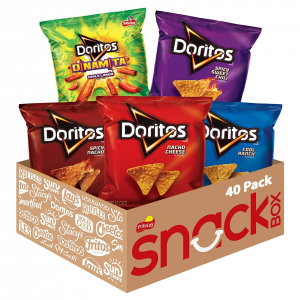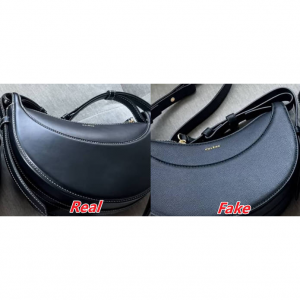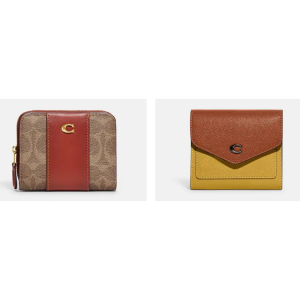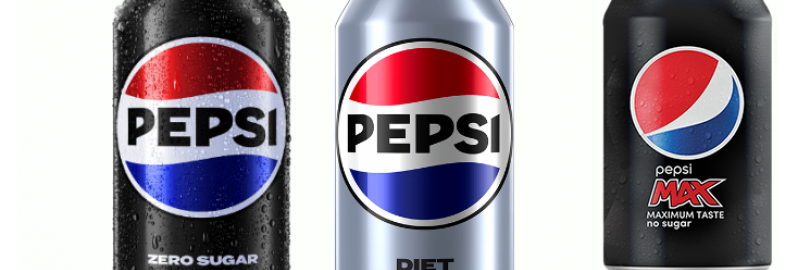
Pepsi Zero vs. Diet Pepsi vs. Pepsi Max vs. Pepsi One: Differences and Reviews 2025
PepsiCo products are enjoyed by consumers more than one billion times a day in more than 200 countries and territories around the world.
Quick View: Pepsi Zero vs. Diet Pepsi vs. Pepsi Max
PEPSI ZERO SUGAR | Diet Pepsi | Pepsi MAX | |
|
|
| |
Calories | 0 | 0 | 1 |
Added Sugars | 0g | 0g | 39g |
Caffeine Content | 38 mg/12 fl oz | 35 mg / 12 fl oz | 34 mg/ 330ml |
Sodium | 40mg | 35mg | 45mg |
Phosphorus | Phosphorus 50 mg (4% DV) | Phosphorus 50 mg (4% DV) | - |
Ingredients | CARBONATED WATER CARAMEL COLOR PHOSPHORIC ACID ASPARTAME POTASSIUM BENZOATE (PRESERVES FRESHNESS) CAFFEINE NATURAL FLAVOR ACESULFAME POTASSIUM CITRIC ACID PANAX GINSENG ROOT EXTRACT CALCIUM DISODIUM EDTA (TO PROTECT FLAVOR) | CARBONATED WATER, CARAMEL COLOR, ASPARTAME, PHOSPHORIC ACID, POTASSIUM BENZOATE (PRESERVES FRESHNESS), CAFFEINE, CITRIC ACID, NATURAL FLAVOR, ACESULFAME POTASSIUM | Carbonated Water, Colour (Caramel E150d), Sweeteners (Aspartame, Acesulfame K), Acids (Phosphoric Acid, Citric Acid), Flavourings (Including Caffeine), Preservative (Potassium Sorbate). Contains a Source of Phenylalanine. |
Editor's review: Pepsi Zero Sugar vs. Diet Pepsi vs. Pepsi Max: Which is the Best Choice?
Although there are many different opinions, my first choice is Pepsi Zero Sugar.
First, it does not contain the added sugar found in high-fructose corn syrup, which fits the low-sugar, low-carb, low-calorie diet trend. Zero sugar intake can help reduce some health risks such as weight gain, frequent acne, and increased blood pressure.
Second, Pepsi Zero Sugar tastes more like the original. We think this soft drink is more refreshing, tasty and smooth than Diet Pepsi and Pepsi MAX, with a "real cola taste".
Third, its caffeine content is relatively low. Even if you drink four cans a day, you will not suffer from headaches, insomnia, rapid heartbeat, nervousness and other problems.
Fourth, its packaging is really fashionable, and drinking carbonated drinks feels like a life ritual.
For more details and differences on Pepsi products, continue browsing below.
Money Saving Tips First:
In fact, you can save up to 100% on online shopping at home and abroad!
Such a high amount of cash back comes from Extrabux (What is Extrabux?), it also offers coupon codes and recent promotions, and brings together 10,000+ sites (US, China, UK, Japan, Australia , Germany, France, Italy, etc.).
Just sign up for an Extrabux account and earn exciting cash back every time you place an order via the relevant link. Sign-Up Bonus: Join for FREE & Earn $20 Welcome Bonus today! Then earn $5 Friend Referral Bonus!
Whether you are buying cheap domestic products, international luxury goods, or buying mobile phones, computers, refrigerators, washing machines, clothes, shoes, bags, mother and baby products, snacks, drinks, or booking air tickets, hotels, car rentals, or registering services and memberships , you can save money on all related purchases - save $1,000 a year!
MORE FROM
What is Diet Pepsi? The Origin and Name of Diet Pepsi
Diet Pepsi itself was the first no- or low-calorie cola sold nationwide in the United States.
In 1963, It was first test-marketed as a sugar-free variant of Pepsi-Cola under the name Patio Diet Cola. Received a positive reception due to the changing eating habits and preferences of the baby boom generation at the time, the drink was launched nationally in 1964 as Diet Pepsi.
In 2013, Diet Pepsi was changing its aspartame to sucralose, but many people complained.
In 2018, PepsiCo switched Diet Pepsi's sweetener from sucralose to aspartame.
In some countries, Diet Pepsi is sold under the name Pepsi Light.
What is Pepsi Max? The Origin and Name of Pepsi Max
Pepsi Max is a low-calorie, sugar-free cola, marketed by PepsiCo as an alternative to Pepsi and Diet Pepsi.
Pepsi Max is also known as Pepsi Black in some countries.
On April 5, 1993, Pepsi Max debuted in Australia, the United Kingdom, and Italy.
In 2007, it was launched in the United States as Diet Pepsi Max. In 2009, the name was changed to Pepsi Max. However, in 2016, the name was changed to Pepsi Zero Sugar.
In other words, Pepsi Max is not sold in the US market today. Pepsi Max is mainly sold in Asian and European markets.
Pepsi Max contains a combination of artificial sweeteners, such as aspartame and acesulfame potassium, to provide a sweet taste without the added calories of sugar.
What is Pepsi Zero Sugar? The Origin of Pepsi Zero Sugar
Pepsi Zero Sugar (sold as Diet Pepsi Max until 2009 and Pepsi Max until August 2016) is a zero-calorie, sugar-free soda sweetened with aspartame and acesulfame potassium.
The sugar-free soda has been updated with a new recipe for 2025, featuring a "new sweetener system" that offers a "refresher, bolder flavor" than previous versions.
The advantaged new Pepsi Zero Sugar formula is another example of the brand's innovative approach in delivering new flavor profiles. In fact, consumer preference testing has shown that the new Pepsi Zero Sugar outpaces the old formula across the board, including key metrics like overall liking and purchase intent. Consumers in the comprehensive assessment study preferred the new Pepsi Zero Sugar, considering it more: refreshing, tasty, having a real cola taste, smooth, able to pair with food and more.
One of the largest cola brands across the globe, PepsiCo has taken a massive step towards making the diet-friendly no-sugar pepsi taste even better than the regular beverage by using a completely new sweetener.
Tests and trials conducted across the country have proved that the new innovative formula is preferred greatly over the old one. Though the brand has not hinted at what the new sweetener in the formula is, it claims that customers can expect the new flavor to have a really smooth cola taste, making it even better for pairing with all sorts of savory snacks and food.
PepsiCo is changing the recipe of Pepsi Zero Sugar to more closely mirror the taste of its signature cola with sugar, the snack and beverage giant said in a statement.
Compared to the previous version of its Pepsi Zero Sugar, the soda maker said it made the caffeine level the same as regular Pepsi and removed the ginseng, which is not in the sugar version of the beverage.
One of 7.5. ounces of Pepsi Zero Sugar as well as regular Pepsi.
Pepsi Zero Sugar has 0 calories, 0g of fat, 25mg of sodium, 0g of total carbohydrates, 0g of sugar and 0g of protein.
Pepsi has 90 calories, 0g of fat, 20 mg of sodium, 25g of total carbohydrates, 25g of total sugars and 0g of protein.
Did Diet Pepsi change their formula 2025?
There is no change to Diet Pepsi or Pepsi MAX.
What is Pepsi One? The Origin and End of Pepsi One
Pepsi One is a sugar-free cola sold by PepsiCo in the United States as an alternative to regular Pepsi and Diet Pepsi.
On June 30, 1998, the artificial sweetener acesulfame potassium (Ace-K) was approved for use by the Food and Drug Administration. PepsiCo responded within an hour, announcing Pepsi One, which hit shelves the following October.
The original recipe was sweetened with aspartame and acesulfame potassium. The product is based on an earlier product called Pepsi Max (sold in other countries), but it has a flavor profile developed specifically for the U.S. market. So named because there is one calorie per eight fluid ounces.
On March 21, 2005, PepsiCo in the United States announced the addition of sucralose to Pepsi One.
In 2015, Pepsi One was discontinued after its sister product, Diet Pepsi, switched to using sucralose and Ace-K as sweeteners instead of aspartame.
Pepsi Max vs Diet Pepsi
Taste
Pepsi Max has a richer, bolder flavor than Diet Pepsi, which is often described as sweeter and lighter.
caffeine:
One 12-ounce can of Pepsi Max contains 49 milligrams of caffeine. One 12-ounce can of Diet Pepsi contains 35 milligrams of caffeine.
Pepsi Max has a slightly higher caffeine content, which gives it a more intense and stimulating taste. On the other hand, Diet Pepsi has a more subtle and smooth taste, making it a popular choice for people who prefer a milder soda experience.
Sweetener
Pepsi Max and Diet Pepsi both contain zero sugar and are low-calorie drinks. They both contain two sweeteners, aspartame and acesulfame potassium.
But Pepsi Max is the perfect blend of two sweeteners, which makes it taste more natural.
Diet Pepsi, on the other hand, focuses on aspartame, which makes it taste sweeter and has a store-like artificial aftertaste.
Target audience:
Pepsi Max is targeted towards young adults who are looking for a more intense and stimulating soda experience. The brand’s marketing campaigns often revolve around adventure, excitement, and thrill-seeking.
In contrast, Diet Pepsi is marketed towards a wider audience that includes health-conscious individuals and people who are looking for a refreshing and light soda experience.
Packaging:
Another difference between Pepsi Max and Diet Pepsi is their packaging. Pepsi Max is often sold in black cans with a bold, sleek, and modern design that appeals to younger consumers.
On the other hand, Diet Pepsi comes in light blue cans that have a more classic and timeless look. The packaging of both drinks reflects their target audience and brand image.
Availability:
Pepsi Max was originally launched in the UK in 1993 and was later introduced to other parts of the world. But it is not currently sold in the United States.
In comparison, Diet Pepsi has been available in the United States since 1964. It was later introduced to other parts of the world, but was called Pepsi Light.
In summary
Diet Pepsi is a sugar-free, no-calorie version of Pepsi with a light, crisp taste, while Pepsi Max is also sugar-free but contains more caffeine and added ginseng to make it bolder and more energizing.
So Diet Pepsi is for those who want a lower calorie but sweeter taste, while Pepsi Max is for those who want a bold, vibrant soda experience without the sugar.
Pepsi Max vs Pepsi Zero
Just now we mentioned that Pepsi Zero Sugar comes from Pepsi Max.
In an effort to rebrand low-sugar beverages in the U.S. market, PepsiCo rebranded its Pepsi Max beverage to Pepsi Zero Sugar in the fall of 2016.
However, we also mentioned that Pepsi Zero Sugar changed its formula in 2025, while there were no changes to the formula of Diet Pepsi or Pepsi MAX (UK version).
Therefore, Pepsi Zero Sugar (US version) may differ from Pepsi MAX (UK version).
Taste
Pepsi Zero is designed to cater to those who want to enjoy the classic Pepsi flavor without the added sugar and calories.
Pepsi Zero provides a refreshing and satisfying experience that closely resembles regular Pepsi, making it a popular choice among calorie-conscious consumers.
Pepsi Max is known for its bold and intense taste, which sets it apart from other sugar-free colas. It aims to provide the maximum flavor experience while containing zero sugar. The distinctive blend of flavors in Pepsi Max ensures that you won’t miss out on the classic Pepsi taste.
Pepsi Max offers a bolder and more intense flavor compared to Pepsi Zero, providing a closer resemblance to regular Pepsi.
Caffeine:
One 12-ounce can of Pepsi Max contains 49 milligrams of caffeine. One 12-ounce can of Pepsi Zero contains 35 milligrams of caffeine.
Pepsi Max has a slightly higher caffeine content, which gives it a more intense and stimulating taste.
As you can see, Pepsi Zero is a calorie-free beverage, making it a suitable option for those following low-calorie diets or individuals who are mindful of their sugar intake. It also contains a moderate amount of caffeine, which can provide a subtle energy boost.
Sweetener
Pepsi Zero and Pepsi Max primarily use a mixture of aspartame and acesulfame potassium to sweeten their products. These sweeteners provide the desired sweetness without contributing any calories to your daily intake.
And Pepsi Max tastes a little sweeter. To achieve the desired level of sweetness, Pepsi Max is primarily sweetened with aspartame, which is a common artificial sweetener known for its high-intensity sweetness. Additionally, it may contain acesulfame potassium to enhance the overall taste.
Target Audience
Pepsi Zero is often marketed toward individuals who are actively managing their calorie intake or following specific diets. It appeals to those seeking a guilt-free cola experience without the added calories. The branding often focuses on the zero-calorie aspect, emphasizing that you can enjoy the great taste of Pepsi without compromising your dietary goals.
The launch of Pepsi Zero was a response to the growing demand for low-calorie and sugar-free beverages. Since its introduction, Pepsi Zero has gained a loyal following, particularly among individuals following specific dietary plans or those seeking healthier beverage options.
Pepsi Max, on the other hand, aims to provide maximum flavor for everyone. It targets a broader audience, including cola enthusiasts who enjoy the bold and intense taste of Pepsi. Pepsi Max’s marketing campaigns often revolve around the concept of indulgence and enjoying a delicious cola experience without sugar content.
Consumer Reception and Reviews
Pepsi Zero: A Low-Calorie Delight
Pepsi Zero has generally received positive feedback from consumers who appreciate its ability to deliver a satisfying cola experience without any calories. Many reviewers note that it closely resembles the taste of regular Pepsi, making it a suitable choice for those seeking a healthier alternative. The blend of artificial sweeteners used in Pepsi Zero has been well-received by individuals who find the sweetness level appealing.
Pepsi Max: Intense Flavor Enjoyment
Pepsi Max has garnered a dedicated fan base, particularly among those who enjoy a bold and robust cola taste. Consumers often praise its ability to provide a maximum flavor experience without the sugar content. Some reviewers even claim that Pepsi Max surpasses the taste of regular Pepsi, making it their go-to choice for a sugar-free cola.
| Top 10 Most Carbonated Soda in the World 2025 |
| Top 10 Most Sugary Sodas in the World, Ranked 2025 |
| The 10 Top Lemon-Lime Flavored Drinks, From Soda to Sparkling Water |
| Top 10 Most Caffeinated Sodas in the World 2025 |
| Ginger Ales Shoutout: Canada Dry vs. Schweppes vs. Seagram's vs. Vernors? |
| Canada Dry Ginger Ale Zero Sugar vs. Regular: Differences and Reviews 2023 |
| Diet Mountain Dew vs. Zero Sugar vs. Regular: Differences and Reviews 2025 |
| Diet Dr Pepper vs. Dr Pepper Zero vs. Regular vs. Cream Soda: Differences and Reviews 2025 |
Diet Coke vs. Coca-Cola Zero Sugar vs. Regular Coca-Cola: Differences and Reviews 2025 |
| Everyday Dose vs. RYZE vs. MUD WTR: Which Brand is Best for Mushroom Coffee? |
| Truvani vs. Ka'Chava vs. RYZE vs. Isagenix: Which Brand is Best for Superfood Meal? |
| Ninja CREAMi vs. Deluxe vs. Breeze: Differences and Reviews 2025 |
| Top 10 Strongest Mints in the World 2025 |
| 10 Healthy Nutella Alternatives That Are Low-Calorie and Vegan-Friendly |
| Top 10 Longest Lasting Chewing Gum in the World 2025 |
| 5 Better or Cheaper Alternatives to Liquid I.V. (No Sugar or Less Sugar) |
| 13 Mintiest Toothpastes in the World, Ranked 2025 |
| BioSteel vs. Gatorade vs. Liquid I.V vs. LMNT: Who is Best for Electrolyte Drink? |
| Top 10 Mintiest Gum in the World 2025 |
| Electrolit vs. Gatorade vs. Powerade vs. Pedialyte: Who Wins the Sports Drink Brand Showdown? |
| Chips Ahoy vs. Oreo vs. Famous Amos vs. Chips More: Who Makes the NO. 1 Cookies Brand? |
| Liquid I.V. vs. Gatorade vs. Pedialyte: Which Makes the Best Electrolyte Drink? |
| OLIPOP vs. Poppi vs. Culture Pop vs. Zevia: Which Brand is Best for Prebiotic Soda? |
| 10 Most Popular Soda Brands in the World, Ranked 2025 |
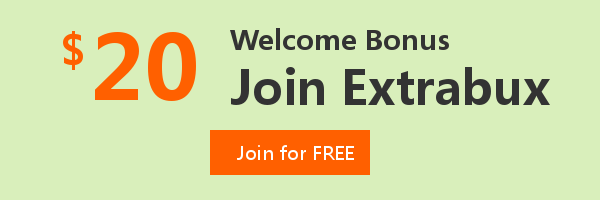
Extrabux is an international cashback shopping site, offering up to 30% cashback from 10,000+ Stores!
Squarespace, SkinStore, MATCHESFASHION, The Wall Street Journal, NordVPN, Visible, Armani Exchange, Sam's Club, PUMA, AliExpress, Card Cash, NET-A-PORTER, Udacity, Udemy, Selfridges, LOOKFANTASTIC, Vimeo, Coach Outlet, lululemon, PrettyLittleThing, Booking.com, Ripley's Aquarium, iHerb, Groupon, etc.
Join to get $20 welcome bonus now! (How does Welcome Bonus work?)
Recommendation
-

Is Turkish Airlines Good for International Flights?
-

10 Best & Stylish Winter Coats for Women on NET-A-PORTER in 2025
-
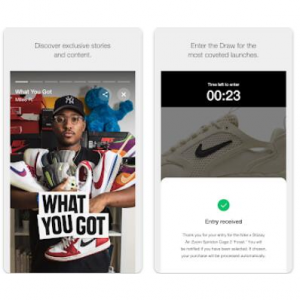
Top & Best 12 Sneaker Apps/Websites for Raffles, Releases & Restocks in 2025
-
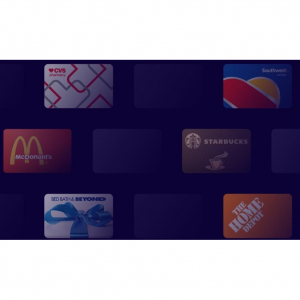
7 Best Gift Card Exchange Sites - Buy, Sell and Trade Discount Gift Card Safely and Instanly!
-

Top 9 Professional Skincare Brands for Licensed Estheticians 2025

